Jehovah’s Witnesses refuse transfusion based on strong religious beliefs. Despite this, blood bankers must be prepared to assist in their care.
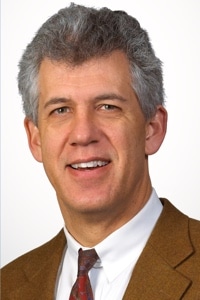
Dr. Jed Gorlin
How Does This Impact Blood Bankers?
When a patient shows up at a medical facility and says, “I am a Jehovah’s Witness and I do not want any transfusion whatsoever,” clinical providers may find themselves unsure of how to proceed. Since there are over 8.5 million Witnesses worldwide, it is almost inevitable that most facilities will face this issue at some point. Somewhat ironically, Transfusion Medicine professionals are often asked for their “expert” opinions on what to do with patients who actually refuse most of the blood products we provide!
Why Discuss This Here?
In these often-challenging situations, I believe it is essential that those of us who work in Transfusion Medicine be aware of the issues our clinical colleagues face with patients who refuse transfusion. Blood bankers can often help ensure that Witnesses receive compassionate, respectful, and excellent care, and there is much we can learn from them. There are also nuances to the transfusion prohibition (such as a general acceptance of “derivatives” which may include coagulation factors and even cryoprecipitate), and we would be wise to understand the general principles. I asked Jed Gorlin, Medical Director at Innovative Blood Resources, to share his expertise in these settings with you.

Dr. Jed Gorlin
How Does This Impact Blood Bankers?
When a patient shows up at a medical facility and says, “I am a Jehovah’s Witness and I do not want any transfusion whatsoever,” clinical providers may find themselves unsure of how to proceed. Since there are over 8.5 million Witnesses worldwide, it is almost inevitable that most facilities will face this issue at some point. Somewhat ironically, Transfusion Medicine professionals are often asked for their “expert” opinions on what to do with patients who actually refuse most of the blood products we provide!
Why Discuss This Here?
In these often-challenging situations, I believe it is essential that those of us who work in Transfusion Medicine be aware of the issues our clinical colleagues face with patients who refuse transfusion. Blood bankers can often help ensure that Witnesses receive compassionate, respectful, and excellent care, and there is much we can learn from them. There are also nuances to the transfusion prohibition (such as a general acceptance of “derivatives” which may include coagulation factors and even cryoprecipitate), and we would be wise to understand the general principles. I asked Jed Gorlin, Medical Director at Innovative Blood Resources, to share his expertise in these settings with you.
About My Guest:
Dr. Jed Gorlin received his BS from Stanford and his MD from Yale. He is board-certified in Pediatrics and Blood Banking/Transfusion Medicine. He is Medical Director and Vice President, Quality and Regulatory Affairs at Innovative Blood Resources. Jed’s duties include Memorial Blood Centers in Minnesota, Nebraska Community Blood Bank, the Community Blood Center of Greater Kansas City in Kansas City, MO. He has served in various leadership roles with AABB through his more than 20 years in Transfusion Medicine, including Chair of the Standards Committee for the 20th and 21st editions of AABB Standards, and as an AABB board member. He is a chapter contributor to 21 published books and anthologies, and author or co-author of over 120 published papers and abstracts.
DISCLAIMER: The opinions expressed on this episode are those of my guest and I alone. Statements made on this podcast are not official opinions of the organizations with which either of us is affiliated. Neither Dr. Gorlin nor I have any relevant financial disclosures.
Further Reading:
- Case report discussed by Dr. Gorlin in this interview: Salmen M, Hendriksen S, Gorlin J et al. Oxygen Delivery during Severe Anemia When Blood Transfusion Is Refused on Religious Grounds. Ann Am Thorac Soc 2017;14:1216–1220.
- Resource from American Society of Anesthesiologists: Transfusion Consent Form with Product Options
- Official position statements from JW.org:
- Religious and Ethical Position on Medical Therapy and Related Matters (thanks to Patricia Cannon for the link).
- Clinical Strategies to Avoid Blood Transfusion
- Other downloadable resources
Music Credit
Music for this episode includes “Cuando te invade el temor” and “Reflejo,” both by Mar Virtual via the Free Music Archive. Click the image below for permissions and license details.




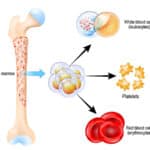

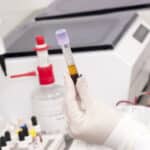



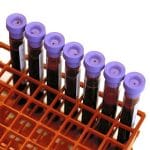

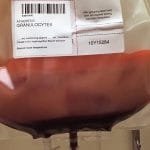
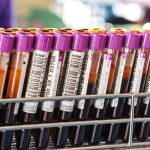
Dear Dr. Chaffin, Thank you once again for this treasure trove of information in the arena of transfusion free medicine with Dr. Jed Gorlin. This interview gave me the behind the scenes glimpse of the courage and dedication needed to in treating a patient population who decline hematopoietic support for religious reasons. The case study involving Bovine HGB was incredible! In reference to the rationale behind declining the four main components of blood (RBC, WBC, PLTS, and WBC) is a religious not a medical stance based not only in the Old Testament (Hebrew Aramaic) Scriptures but also the New Testament (Christian Greek Scriptures). The essence of these scriptures is to “abstain from blood.” Obviously, this applied to eating meat that was not bled during that time. This carries over to blood transfusions for those in the Jehovah’s Witness faith because it’s taking blood into the body. It can be likened to getting food parenterally (example TPN) or injesting it by mouth. The routes are different but they end up in the same place…the body. Thought you would be interested in a link from the official site.
https://download-a.akamaihd.net/files/content_assets/c9/1013778_E_cnt_1.pdf
Best regards,
Patricia Cannon
Patricia, that’s a really great pdf, and I don’t think I had seen it before. I am going to add it to the references.
As to your comments, I mentioned above both the Old and New Testament texts. It was not my goal to get too deeply into the discussion of the interpretation of those texts, and it was very much not my intention to criticize or denigrate those interpretations by Jehovah’s Witnesses. My goal was simply to address the “what now?” questions that clinicians and blood bank folks face when someone who refuses transfusion of the main components arrives for care. Thanks for commenting.
-Joe
Yes, I really appreciate everything about this interview! Very respectfully done. I love your podcasts and believe it’s such gift to all those interested in the field of hematology and PBM!
Best regards, Patty
Also, I realized I mentioned WBC twice instead of Plasma. Working on an IPhone! Thanks again! Looking forward to the next podcast! Best, Patty
Read about those products tested by the military couples of years ago. They are not all bovine though. According to Ultrapure, it is combination of bovine and human hemoglobin. Surprise it is Ok for Jehovah Witness. The storage temperatures are different too. Ultrapure needs reconstitution and stores at -20 after that. The rest are all bovine and can be 2-30 degree C. Storage temperature aside, Ultrapure has graphs showing bovine hgb affinity is close to bovine rbc, whereas human hgb is more like hgb F, with stronger affinity compare to human rbc. Wonder how bovine hgb affinity works when it is around human tissue.
Dr. Gorlin was not referring to that particular product. The two that he referenced are bovine-only.
-Joe